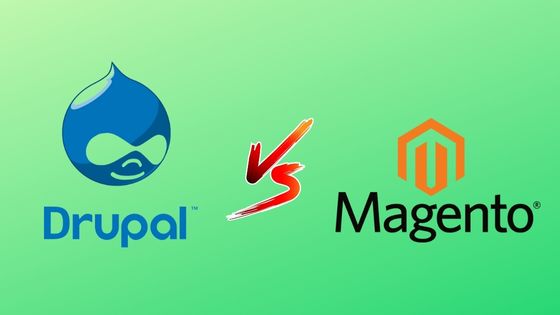Comparing Drupal and Magento: Choosing the Right Platform for Your E-commerce Business
Introduction to Drupal and Magento
Introduction: Drupal and Magento are two popular open-source content management systems (CMS) used for e-commerce website development. Both platforms offer a range of features and functionalities to help businesses establish an online presence, manage products and orders, and handle customer transactions. In this article, we will compare Drupal and Magento and help you choose the right platform for your e-commerce business.


Key Features and Functionalities of Drupal and Magento
Drupal Features and Functionalities:
- Robust content management system
- Wide range of modules for adding extra functionality
- Advanced user management and role-based access control
- Strong security features
- Good SEO capabilities
Magento Features and Functionalities:
- Comprehensive e-commerce features
- Customizable product catalog
- Multiple payment and shipping options
- Advanced order management
- Responsive design and mobile optimization
Both Drupal and Magento offer a range of features and functionalities to meet the needs of different types of businesses. Drupal Development is ideal for businesses that need a powerful CMS with a focus on content management and security, while Magento is ideal for businesses that need a comprehensive e-commerce solution with advanced features such as product catalog management and order management.
Cost Comparison of Drupal and Magento
Drupal Cost Comparison:
- Free open-source platform with no licensing fees
- Additional costs for hosting, themes, and modules
- May require additional resources for customization and development
Magento Cost Comparison:
- Two versions available: Magento Open Source (free) and Magento Commerce (paid)
- Magento Commerce has a higher licensing fee but includes advanced features and support
- Similar to Drupal, additional costs for hosting, themes, and extensions
The cost of Drupal and Magento can vary greatly depending on the specific needs and requirements of your business. While Drupal is free to use, it may require additional resources and development work to fully customize it for your business.
Magento Development Commerce has a higher licensing fee, but it also includes advanced features and support. Both platforms may also require additional costs for hosting, themes, and extensions. It’s important to carefully consider your budget and business needs when choosing between Drupal and Magento.
Ease of Use and Customization:
Drupal:
- Steep learning curve for beginners
- Wide range of customization options using modules
- Requires technical skills for customization
Magento:
- User-friendly interface for beginners
- Customization options through themes and extensions
- May require technical skills for advanced customization
When it comes to ease of use and customization, both Drupal and Magento have their strengths and weaknesses. Drupal can be challenging for beginners due to its steep learning curve, but it offers a wide range of customization options using modules.
On the other hand, Magento has a user-friendly interface that makes it easier for beginners to get started, but advanced customization may still require technical skills. Ultimately, the choice between Drupal and Magento will depend on your technical expertise and the level of customization you need for your business.
Security and Support:
Drupal:
- Strong security features built-in
- Regular security updates and patches
- Huge developer community for user support
Magento:
- Robust security features
- Regular security updates and patches
- Dedicated support team and large community of developers and users
Both Drupal and Magento place a high priority on security and regularly release security updates and patches. Both platforms also have strong built-in security features and a large community of developers and users who can provide support.
Magento has the added advantage of a dedicated support team, while Drupal has a large community of developers and users who can provide support. Ultimately, both Drupal and Magento offer robust security and support options for businesses.
Market Presence and Community Support:
Drupal:
- Widely used and well-established CMS
- Large, active community of developers and users
- Wide range of modules and support resources available
Magento:
- Leading e-commerce platform
- Large, active community of developers and users
- Wide range of extensions and support resources available
Both Drupal and Magento have a strong market presence and active community support. Drupal is a widely used and well-established CMS, with a large, active community of developers and users.
Magento, on the other hand, is a leading e-commerce platform with a large, active community of developers and users. Both platforms have a wide range of modules, extensions, and support resources available to help businesses get the most out of their platform.
Whether you choose Drupal or Magento, you’ll have access to a robust community of developers and users who can provide support and resources for your business.
Concluding The Right Choice For Your Business.
In conclusion, both Drupal and Magento are powerful platforms with unique features and capabilities. The right choice for your business will depend on a number of factors, including your budget, technical expertise, and the level of customization you need.
When deciding between Drupal and Magento, it’s important to consider factors such as cost, ease of use and customization, security and support, and market presence and community support.
Ultimately, both Drupal and Magento offer robust solutions for businesses, and the right choice will depend on your specific business needs and goals. It’s important to carefully weigh the pros and cons of each platform before making a final decision. With the right platform, you can build a successful online presence and grow your business for years to come.
















